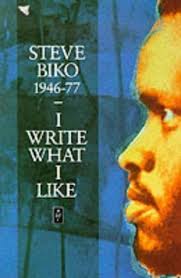A further extract from the same chapter as the last one i shared, this one looks at the history that is taught and the need for young black men and women to have stories and heroes they can relate to:
One writer makes the point that in an effort to destroy completely the structures that had been built up in the African Society and to impose their imperialism with an unnerving totality the colonialists were not satisfied merely with holding a people in their grip and emptying the Native’s brain of all form and content, they turned to the past of the oppressed people and distorted, disfigured and destroyed it. No longer was reference made to African culture, it became barbarism. Africa was the “dark continent”. Religious practices and customs were referred to as superstition. The history African Society was reduced to tribal battles and internecine wars. There was no conscious migration by the people from one place of abode to another. No, it was always flight from one tyrant who wanted to defeat the tribe not for any positive reason but merely to wipe them out of the face of this earth.
No wonder the African child learns to hate his heritage in his days at school. So negative is the image presented to him that he tends to find solace only in close identification with the white society.
No doubt, therefore, part of the approach envisaged in bringing about “black consciousness” has to be directed to the past, to see to rewrite the history of the black man and to produce in it the heroes who form the core of the African background. To the extent that a vast literature about Gandhi in South Africa is accumulating it can be said that the Indian community already has started in this direction. But only scant reference is made to African heroes. A people without a positive history is like a vehicle without an engine. Their emotions cannot be easily controlled and channelled in a recognisable direction. They always live in the shadow of a more successful society. Hence in a country like ours they are forced to celebrate holidays like Paul Kruger’s day, Heroes’ Day, Republic Day, etc., all of which are occasions during which the humiliation of defeat is at once revived.
Then too one can extract from our indigenous cultures a lot of positive virtues which should teach the Westerner a lesson or two. The oneness of community for instance is at the heart of our culture. The easiness with which Africans communicate with each other is not forced by authority but is inherent in the make-up of African people. Thus whereas the white family can stay in an area without knowing its neighbours, Africans develop a sense of belonging to the community within a short time of coming together. Many a hospital official has been confounded by the practice of Indians who bring gifts and presents to patients whose names they can hardly recall.
Again this is the manifestation of the interrelationship between man and man in the black world as opposed to the highly impersonal world in which the Whitey lives. These are characteristics we must not allow ourselves to lose. Their value can only be appreciated by those of us who have not as yet been made slaves to technology and the machine. One can quote a myriad of other examples. Here again “black consciousness” seeks to show the black people the value of their own standards and outlook. It urges black people to judge themselves according to these standards and not to be fooled by white society who have white-washed themselves and made white standards the yardstick by which even black people judge each other.
[For the next passage looking at Community over Individualism, click here]







[…] [For more from Steve Biko on History and Heroes, click here] […]
[…] [For more from Steve Biko on History and Heroes, click here] […]